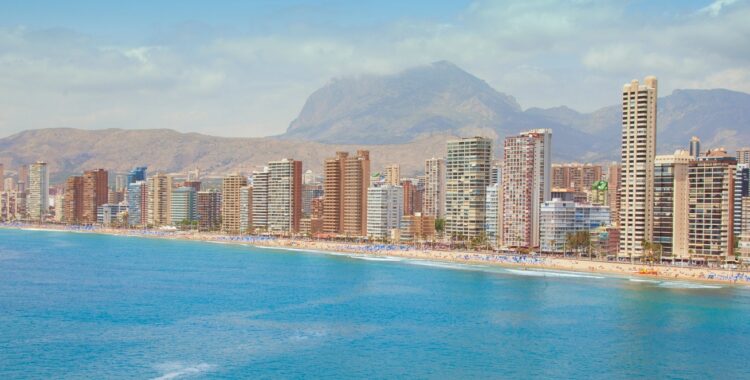BUYING A PROPERTY IN SPAIN
Now that it’s summer time, many foreigners come to Spain and may decide to buy a property in Benidorm, it is a big step in their lives, and of course a great investment. In order to make the purchase process as smoothest as possible and avoid future problems, there are certain guidelines that any potential buyer should bear in mind. In order to buy a property in Spain is mandatory to have an identification number called NIE. You can apply for it in the Police Station. You can do it personally, in a Spanish Consulate/Embassy (it can take up to two months) or we can represent you with a Power of Attorney.
All purchases in Spain could have up to four phases: the first one would be the reservation agreement of the desired property, then comes the signature of the purchase contract between seller and buyer, after a few days/weeks the signature of the purchase deed before a Spanish Notary and then the payment of the taxes and registration of the deed.
1) Reservation agreement: It is a quite simple document that the real estate agent makes the buyer sign in order to take the property out of the market and reserve it. Usually the buyer pays a small amount of money (around 1.000 €). Before signing this document is always important to make a first research of the legality of the property and the encumbrances that could affect it.
2) Private purchase contract: This moment is extremely important and not many buyers give importance to it. It is highly recommended that a lawyer assist you in the preparation of this document. This contract will rule all the purchase process: how the payments will be done, the description of the properties, etc. It is very important to pay attention to all its clauses. When this contract is signed the buyer usually pays around 10 % of the price and the rest at the Notary.
There are certain basic issues that the buyer should always check before signing this private contract:
I. The stipulation regarding what happens with the money in the case the buyer fails to buy or the seller fails to sell. The most common stipulation is a penitential clause called in Spanish arras penales. This means that if the buyer does not pay the rest of the price or cancel the purchase he will lose the money given until that moment and if the purchase fails due to the seller, the buyer will have the right to the double of the money given.
II. Town planning infractions: It is convenient to make sure that the property that we are interested is planning infractions free. This can be checked by applying for a certificate to the Town Hall.
III. Other important issues are the stipulations regarding hidden damages. The buyer should always make sure that he is not renouncing in the contract to the rights that the Civil Code gives him. According to this law, the seller is responsible for the hidden damages in the property (referred to structural damages).
IV. Check if there is any mortgage over the property: this is important because the same day of the purchase the mortgage should be cancelled by giving the bank the pending amount (obviously this part will is deducted from the selling price).
V. Check if there is any other charges or encumbrance over the property (such as seizures from the tax authorities, social security, debts with the Community of Owners, etc.).
VI. Check if the property is rented. This is very important because if you buy a property that is being rented you may have to wait until the tenants contract is over (and it could be up to 3 years!)
VII. Check if there are debts from the seller that could affect the property: Town Hall taxes such as the property tax (Impuesto Bienes Inmuebles), electricity bills, water company bills, Community of Owners bills, etc.
3) Notary meeting: In order to transfer the ownership in Spain it is mandatory to sign a purchase deed before a Notary. The Notary is a public officer that gives faith to legal business. The signature of the document before the Notary has a cost (it depends on the value of the property). If you do not speak Spanish you will have to go assisted by a translator (unless the Notary has one). When you sign at the Notary you will receive the keys from the seller and you can start enjoying your property.
4) Payment of the taxes (in purchases between private persons not subject to VAT): • In the next 30 days after the Notary meeting, the buyer has to pay a tax called Transmisiones Patrimoniales Onerosas: TPO (10 % of the selling price). • If the seller is a non resident, the buyer will have to retain 3 % of the selling price in order to pay the Non Residents Income Tax in the name of the seller (form 211) • Increase of the value Tax (Plusvalia): Is a town hall tax that the seller has to pay for the increase of the value of the land.
5) Registration of the deeds: Once the taxes (TPO) are paid, the purchase deed has to be registered in the Land Register. This step takes around 1 month. Once all this steps are done, the property will be fully registered in your name. Bear in mind that if you own a property in Spain and you are non resident, you will have to present a form to the tax authorities in December every year (form 210).
